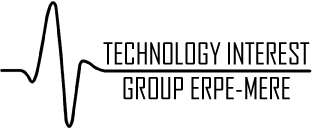
+- Forum Technology Interest Group Erpe-Mere (http://www.on4lar.be/forum)
+-- Forum: Onze club (http://www.on4lar.be/forum/forumdisplay.php?fid=1)
+--- Forum: Het forum (http://www.on4lar.be/forum/forumdisplay.php?fid=2)
+--- Discussie: Advantages of Different Types of Quality Inspections (/showthread.php?tid=757)
Advantages of Different Types of Quality Inspections - franklin1 - 07-10-2021
Inspections carried out during the manufacturing process help to keep low-quality products from leaving the factory. Quality issues should be identified and addressed by auditors before they have a negative impact on a brand or retailer's bottom line or reputation.
Advantages of Different Types of Quality Inspections
Quality Inspections are classified into several types.
Quality check services are divided into three categories: pre-production, in-line, and final. In order to detect and correct quality problems, a variety of details must be inspected and approved during each phase.
Inspection during the pre-production phase
Raw materials should be tested during the pre-production phase before they are used in the manufacturing process. The material may be subjected to a number of tests to determine its weight, dimensional stability, pilling resistance, torqueing, pile retention, stretch recovery, and other characteristics. Closures, zippers, elastics, and other embellishments such as beads, rhinestones, sequins, and rivets, among other things, should be tested for compliance with regulatory standards.
Because quality issues are frequently caused by defects in the materials, inspection services during the pre-production phase allow auditors to identify and correct any problems before the manufacturing process begins. In the end, brands and retailers can avoid unexpected costs and delays by inspecting the materials up front.
Inspection on the line
Additional inspections should be performed at various stages of the manufacturing process. Inspections of apparel should take place at each critical stage of the manufacturing process, from cutting to assembling to pressing or other finishing procedures. To ensure that each part is accurately notched and shades are separated, each cutting ticket should be randomly inspected during the cutting phase, for example. If the fabric is cut incorrectly, the parts will not be able to be assembled properly.
It is critical to conduct in-line inspections because quality issues are often reworkable during the manufacturing process and can be corrected before the final product is completed. When quality problems are not addressed early in the production process, minor problems at the start of the process can develop into larger problems at a later stage.
Inspection at the end of the project
The final inspection provides auditors with one final opportunity to identify and address quality issues before they reach the hands of the buyer, or even worse, the consumer. During the final audit, products are examined for specific performance requirements, overall appearance, sizing and fit, as well as for their overall appearance and fit.
Brands and retailers frequently skip inspections while the products are still in the factory and only conduct random, final inspections once the order has arrived at its final destination. By that time, it is too late, and the only option left is to discard the low-quality units. This is expensive for all parties involved, especially the factory, which will bear the brunt of the financial burden.
On a daily basis, our quality control inspectors for PM services will monitor the production schedule, check the quality of manufactured products, inspect the raw material, semi-finished and finished goods before packing, identify defects and remove failed products, as well as analyze the causes and submit useful corrective measures. We want to assist our customers in meeting desired standards while also increasing profits. You will be able to receive daily updates on the reports as well as quick feedback. Production Monitoring is the best option if you require complete control.